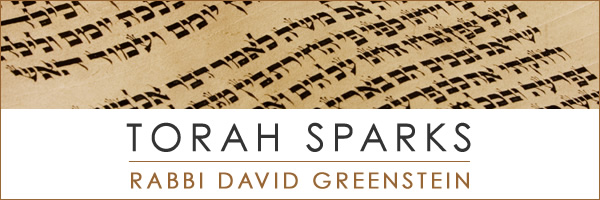Parashat Yitro
Exodus 18:1 – 20:23
Our Torah portion begins with the words, “And Yitro, priest of Midian, Moses’ father-in-law, heard all that the Almighty had done for Moses and for Israel, His people, for the Ever Present One had taken Israel out of Egypt.” (Ex. 18:1) Upon hearing this news Yitro comes to visit Moses and reunites his daughter with her husband. The Zohar asks a simple question about this verse: “Was Yitro the only person who heard this dramatic news? Didn’t the whole world hear about it? After all, we find the Israelites jubilantly singing at the Red Sea, “Nations have heard and they are in an uproar.” (Ex. 15:14) If everyone heard about it, why was it so important to single out Yitro as someone who heard what God had done?
The Zohar gives a simple answer to its simple question: “Rather, the whole world heard about it, but they were not broken by the news. This one [- Yitro] heard it and was broken, and he bowed before the Holy Blessed One and drew near to God’s reverence.” (Zohar II;68b) The answer is simple, but it points to a profound issue that is not so simple. The Zohar teaches us that we are capable of experiencing the most astounding events without undergoing any change in ourselves thereby. God can split the Red Sea, but God cannot split open our hearts. God can sweeten bitter waters, but God cannot sweeten our dispositions. God can make water flow from a stone, but God cannot make tears flow from our eyes.
Why was Yitro’s heart broken wide open by the news of the Exodus, while others merely experienced fleeting pangs of fear or simply registered the information as another news report, to be forgotten the next day, as new news came in?
Our verse introduces Yitro with two descriptions. He is Moses’ father-in-law. So perhaps he was more interested than most in hearing about what happened. Perhaps he was especially affected because he feared for Moses’ safety and rejoiced in his salvation. But there is more. We are also told that Yitro was a religious person in his own right. He was a priest in Midian. So perhaps he was predisposed to let God into his consciousness. But then we would have to ask why other religious leaders of the time did not respond in the same way. So we are led to think that both factors had to interact together. Yitro was a person seeking spiritual truths. But, in order for his predisposition to find fulfillment, it needed to be anchored in a caring human relationship, in his caring for his daughter and her family.
Yet that explanation does not go far enough. For how did Yitro become Moses’ father-in-law in the first place? That happened because he forced his daughters to return to the well where Moses had fought on their behalf and invite the homeless stranger to come back to their home for food and shelter. Because Yitro had room in his heart for an unseen, homeless stranger, he also had room in his heart for the Unseen Homeless Stranger, God.
The Torah clearly hopes that we will learn from his example.
Shabbat Shalom
Rabbi David Greenstein
- Toby Stein: In Memoriam - Thu, Feb 8, 2024
- Faithfulness and Hope: Parashat Sh’lach - Thu, Jun 23, 2022
- Past Their Prime: Parashat B’ha`a lot’kha - Thu, Jun 16, 2022

